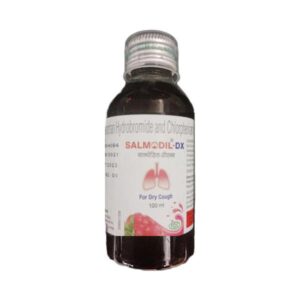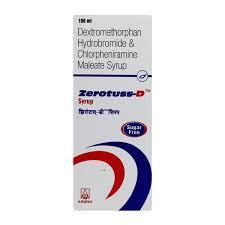CHLORPHENIRAMINE + DEXTROMETHORPHAN
Chlorpheniramine: Chlorpheniramine, also known by the brand name Chlor-Trimeton, is an antihistamine medication that is commonly used to treat symptoms of allergies, such as sneezing, itching, watery eyes, and runny nose. It belongs to the class of drugs known as first-generation antihistamines.
The mechanism of action of chlorpheniramine involves blocking the effects of histamine, a chemical released by the immune system during an allergic reaction. By blocking histamine receptors, chlorpheniramine prevents the symptoms caused by histamine, providing relief from allergy symptoms.
Chlorpheniramine is available in various forms, including tablets, capsules, and syrups. The usual recommended dose for adults is 4 mg to 8 mg every 4 to 6 hours, not exceeding 32 mg in a day. For children, the dosage is based on their age and weight and should be determined by a healthcare professional.
While chlorpheniramine is generally considered safe, it may cause some side effects. Common side effects include drowsiness, dizziness, blurred vision, dry mouth, constipation, and urinary retention. These side effects are more common with higher doses. It is important to note that chlorpheniramine may cause drowsiness, so it is advisable to avoid activities that require alertness, such as driving or operating heavy machinery, until you know how the medication affects you.
In some individuals, chlorpheniramine may cause a paradoxical excitation, causing restlessness or agitation instead of sedation. If you experience any unusual or severe side effects, it is important to seek medical attention.
Chlorpheniramine may interact with other medications, so it is important to inform your healthcare provider about all the medications you are taking, including over-the-counter drugs and herbal supplements.
In summary, chlorpheniramine is an antihistamine medication used for the relief of allergy symptoms. It works by blocking the effects of histamine in the body. While it can effectively provide relief from allergies, it may cause side effects such as drowsiness, dizziness, and dry mouth. It is always advisable to follow the recommended dose and consult a healthcare professional if you have any concerns or questions.
Dextromethorphan: Dextromethorphan is a medication commonly used as a cough suppressant. It belongs to a class of drugs known as antitussives. It is available over-the-counter in various cough and cold medications.
It works by acting on the cough center in the brain, specifically the medullary cough center, to reduce the urge to cough. Dextromethorphan blocks the signals sent via the cough reflex pathway, thereby reducing coughing.
The recommended dose of dextromethorphan varies depending on the age and weight of the individual. For adults and children 12 years and older, the usual dose is 10-20 mg every 4-6 hours as needed. For children aged 6-11 years, the dose is typically 5-10 mg every 4-6 hours as needed. It is important to carefully follow the instructions provided on the product label or as directed by a healthcare professional.
While dextromethorphan is generally considered safe when used as directed, some common side effects may include drowsiness, dizziness, nausea, stomach upset, and constipation. It is worth noting that high doses of dextromethorphan can cause more severe side effects such as confusion, hallucinations, rapid heartbeat, and difficulty urinating. It is important to avoid exceeding the recommended dose to minimize the risk of these adverse effects.
Like any medication, dextromethorphan may interact with other medications or medical conditions. It is important to consult with a healthcare professional before starting this medication to ensure it is safe and appropriate for you.



